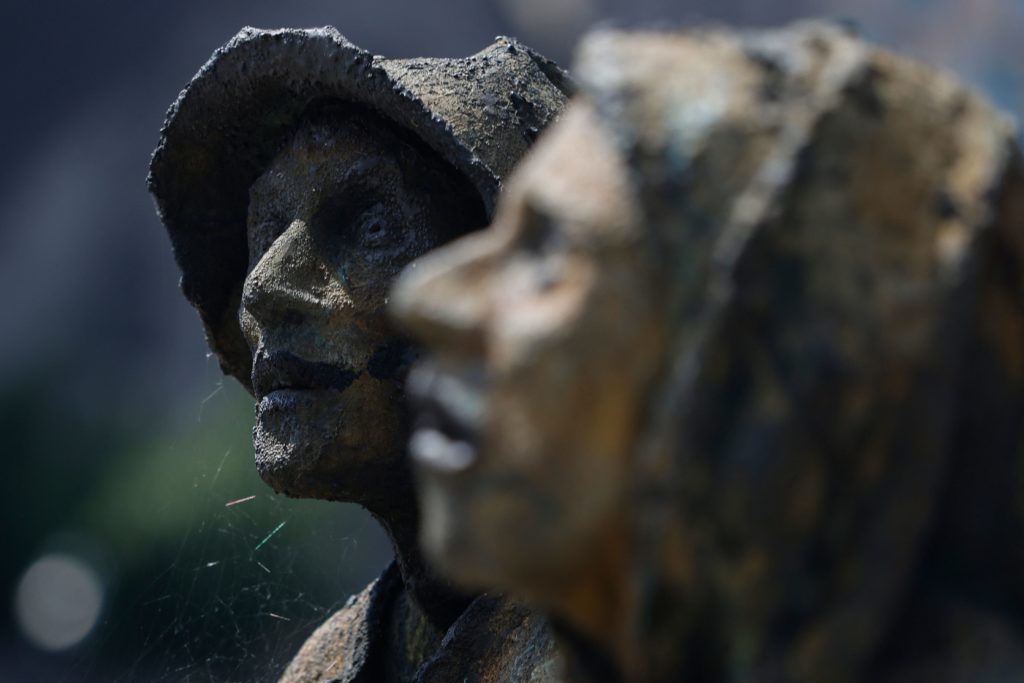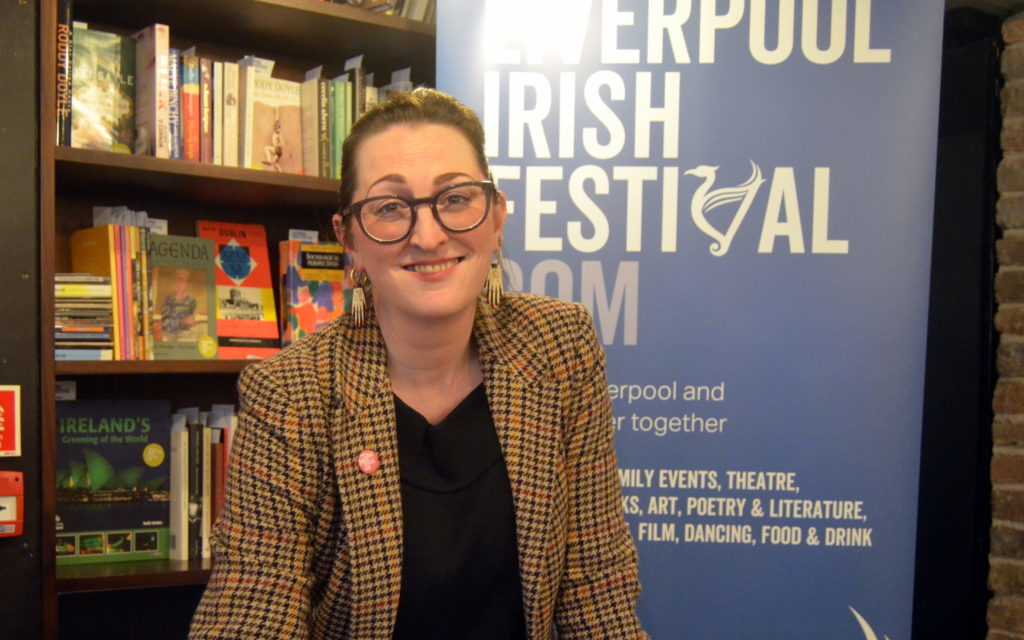A POIGNANT pilgrimage will take place next month where walkers will retrace the steps of hundreds of people forced to leave Ireland due to the Famine.
The Famine Walk will honour the route taken by some 1,490 men, women and children at the height of An Gorta Mór – or The Great Hunger – in 1847.
Evicted from their homes, and guided by a landlord’s land agent, those migrants left Strokestown in Co. Roscommon and were bound for Canada.
The walk took them to Dublin and on to Liverpool, before making their way to the other side of the world, although half of them would perish along the way.
Their route is now known at the National Famine Way and next month’s pilgrimage is designed to raise awareness of it and funds to preserve it.
More than 12 people will undertake the 165km route taken by the evictees, representing the National Famine Way, Strokestown Park and Museum and Liverpool’s Irish Famine Trail.
 A Famine memorial on the banks of the Liffey in Dublin
A Famine memorial on the banks of the Liffey in DublinStarting on May 19, the challenge will also raise vital funds to support the Liverpool Irish Festival’s (LIF) ongoing conservation, digitisation and upgrades to the Liverpool Irish Famine Trail – of which it is the custodian.
“This walk will raise vital funds for the Liverpool Famine Trail, as well as awareness about the rich research and work being done to commemorate An Gorta Mór,” says LIF Artistic Director and CEO Emma Smith.
“Famine awareness has progressed as revisionist and post-colonial history is revealing new perspectives that warrant investigation, appreciation and advocacy,” she added, stating: “This knowledge will be shared.”
Ms Smith added: “The Trail’s seven plaques, memorial ground and other sites are linked by little, bar a few people’s memory, despite its deep significance to Merseyside’s history and heritage.
“It needs recognition, particularly for those tracing their genealogy and tourists (local, national and international) connecting with Liverpool’s life”.
During the pilgrimage, the Liverpool group will carry a pair of bronze shoes, which have been cast from an original 1800s pair found at the Strokestown Estate.
“The shoes are the symbol of The National Famine Way and eight more pairs will be cast and shipped to Canada as a lasting memorial of this harrowing story,” a LIF representative confirmed.
“They’ll be homed in Grosse Île, St John’s Newfoundland, Quebec City, Montreal, Ottawa. Toronto, Niagara, Saint John Partridge Island and Hamilton,” they explained.
From May 19-25 the walking group will be joined by the Ambassador of Ireland to Canada, Dr Eamonn McKee, representing the destination the 1,490 migrants were hoping to reach.
All the shoes contribute to a Global Irish Famine Way programme, which will see bronze shoes hosted across the world, including in Liverpool.
 Emma Smith, Artistic Director and CEO at the Liverpool Irish Festival (Pic: Gerry Molumby)
Emma Smith, Artistic Director and CEO at the Liverpool Irish Festival (Pic: Gerry Molumby)Once the 165km walk to Dublin is complete, the Liverpool walkers will escort the bronze shoes by ferry to Holyhead; by road to Birkenhead and by ferry to Mersey Ports.
From there, they’ll walk the shoes to Clarence Dock, where 1.3million Irish people were brought in to Liverpool during the Famine.
The group will carry the shoes to the Irish Famine Memorial at St Luke’s Church.
That final section of the walk, from Clarence Dock to St Luke’s, will be repeated as a public event on October 27, ahead of an official Irish Famine Memorial event.
Irish Ambassador to Britain, Martin Fraser and the Irish Consul General to the North of England, Sarah Mangan will join that public walk, which will see the bronze shoes taken once more from the docks to the memorial.
“The shoes mark a reconnection between Ireland’s famine emigrants and the Liverpool Irish Famine Trail,” the LIF explaind.
“As custodian of the Trail, the Festival shares and preserves the Trail sites and their stories for future generations.”
Speaking ahead of the event, Ms Mangan said: “It’s especially poignant to be invited to join this commemorative walk, carrying the bronze shoes representing our Irish migrant’s journey.
“We are deeply appreciative of the Festival’s work in highlighting the complex story of Irish migration to and through Liverpool, and commend the ambition to formalise links between the work happening in Liverpool with international sites, such as Strookestown Park and Museum, The National Famine Way (Ireland) and Canada,” she added.
“We wish the team well in raising the funds needed to further invest in saving the sites and stories of our ancestors and the impact of An Gorta Mór”.
Donations to the campaign can be made here.

